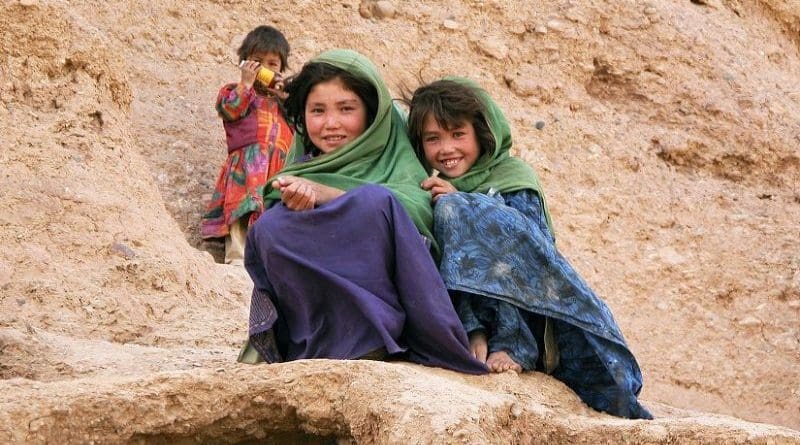Educating The Youth Of Afghanistan: Pakistan’s Efforts – OpEd
Pakistan, despite its economic and social pressures, hosts more than 1.4 million registered Afghan refugees and 850,000 Afghan Citizen Card holders, who have free enrollment in government primary schools and access to higher education with generous scholarships, along with bank accounts and numerous livelihood opportunities.
While the Afghan Taliban has imposed serious curbs on education, especially for women, Pakistan has been generously committed to enable Afghan youth in education sector in order to help them rebuild their own country in a constructive manner. Over 7000 Afghan students are enrolled in various graduate and post-graduate programs in Pakistan. In 2009, Pakistan launched the Allama Iqbal Scholarship Program (AIS) which began its third phase in September 2022. Under the AIS program, the Government of Pakistan is offering 4500 new scholarships to Afghan youth in fields of medicine, engineering, agriculture and management including M Phil and PhD level education. Allocating 1/3rd of the scholarship awards to female Afghan students. Under this program, more than 30,000 students from Afghanistan will compete for 1,500 coveted scholarships every year.
In January 2022, Pakistan finalized Rs 11.2 billion ($63 million) education package for Afghan students besides plan to establish a university campus in Kabul. About 8,250 Afghan undergraduate, graduate students and teachers were to benefit from the Ministry of Education and Professional Training package. Under this scheme Pakistan will provide 3,000 scholarships to Afghan students. Free training with stipends will be offered for 5,000 Afghan nationals. Establishment of AIOU (Allama Iqbal Open University) regional campus in Kabul to improve the education sector and skill development is underway.
During acting Afghan Higher Education Minister Abdul Baqi Haqqani’s first visit to Pakistan in December 2021, the University of Management and Technology in Lahore also announced 100 scholarships for Afghan students and 10 Ph.D. scholarships for teachers and researchers to support education in Afghanistan.
Separately, under UNHCR Pakistan, Afghan refugee students in Pakistan have access to free primary and (in some areas) secondary education through 153 schools, 48 satellites classes, 55 home-based girls schools and 13 early childhood education centers in refugee villages. Around 57,000 refugee children living in 54 refugee villages across Pakistan have received education through UNHCR initiatives.
Other key contributions Pakistan has made towards uplifting education of Afghans include: The construction of Rehman Baba School and Hostel, Kabul at cost of Rs: 120 million. The construction of Liaquat Ali Khan Engineering Faculty Block, Balkh University at cost of Rs: 1046 billion. The Allama Iqbal faculty of Arts, Kabul University at cost of Rs: 672.54 million. Sir Syed Post-graduate faculty of sciences, Nangarhar University at cost of Rs: 389.65 million. Pakistan also built six primary schools and two Vocational Training Institutes in Kabul and Baghlan.
Pakistan on its part is trying to ensure that Afghan youth receives quality education for the sake of regional stability and prosperity. On the other hand, neighboring India is imposing systemic curbs on education of Afghan youth. Recently, India has revoked visa to about 2000 students already studying in various Indian universities. Alongside, the Taliban too has imposed restrictions on women education within Afghanistan. The Taliban have reneged on the majority of the pledges they made shortly after their return to power in August of 2021. Thousands of Afghans, including women, have fled the nation out of fear that the Taliban would return to power and continue the bloody rule they established in the 1990s. The Taliban’s policy of systemic discrimination is being carried on in its current iteration, which prohibits women from entering universities. Since August 2021, Taliban have prevented girls from attending secondary schools, limited women’s and girls’ freedom of movement, excluded women from the majority of available jobs. Since the Taliban have taken control of Afghanistan, women and girls have been effectively excluded from Afghani public life. On 24 December, the de facto authorities issued a decree banning women from working in non-governmental organizations (NGOs). This latest decree followed the suspension of university education for women and secondary schooling for girls until what they termed further notice. the Taliban rulers of Afghanistan dealt what may have been the final blow to women’s education – banning women from universities. Female students above the sixth grade were already confined to their homes by the new rulers’ shutdown of schools, after promising to preserve women’s rights and media freedom.
It is imperative that the Taliban immediately lift their ban on the enrollment of women in universities and allow secondary schools for female students in Afghanistan to reopen. It is imperative that the international community, as well as the countries that provide aid to Afghanistan, make it clear to the Taliban how damaging it will be for not only Afghan women and girls, but for the entire population of Afghanistan.
Author is PhD Scholar (SPIR-QAU). Currently she is working in Islamabad Policy Research Institution (IPRI) as Policy Researcher/Consultant. Her work has been published in local and International publications.

